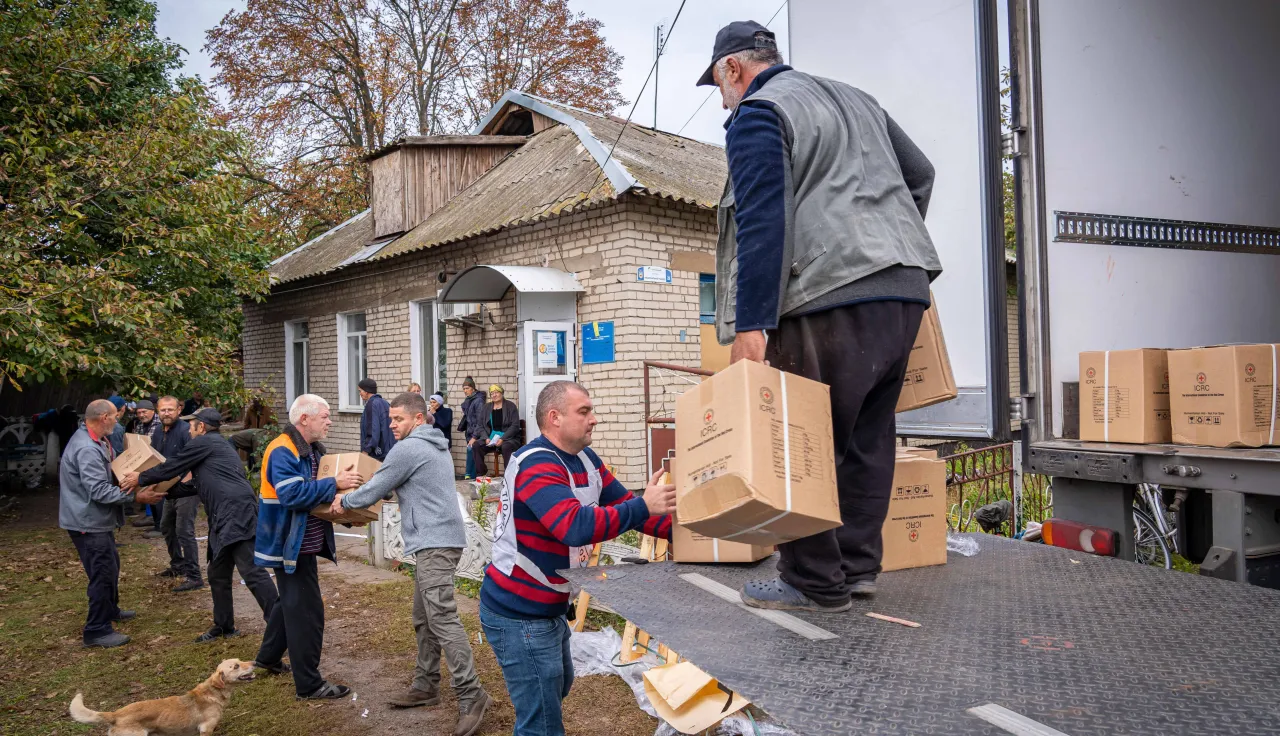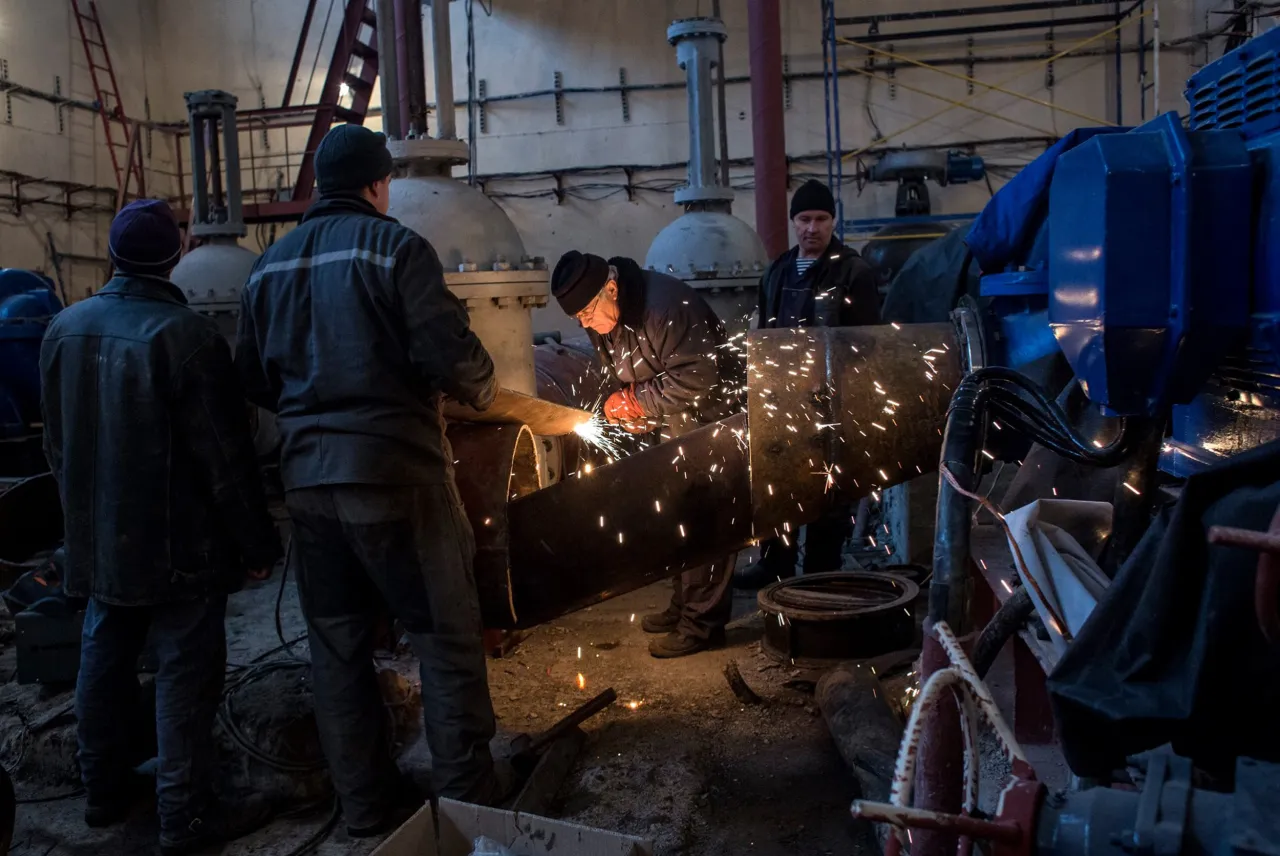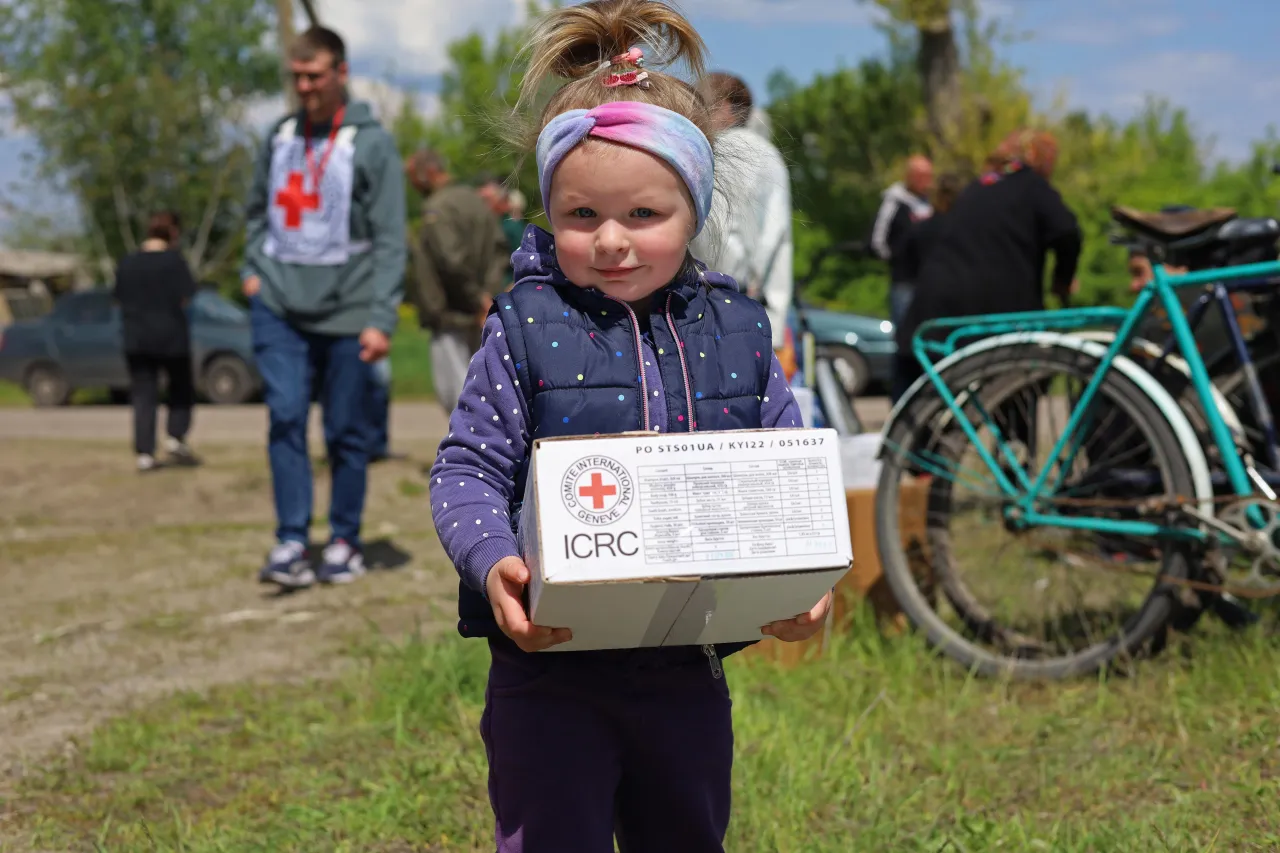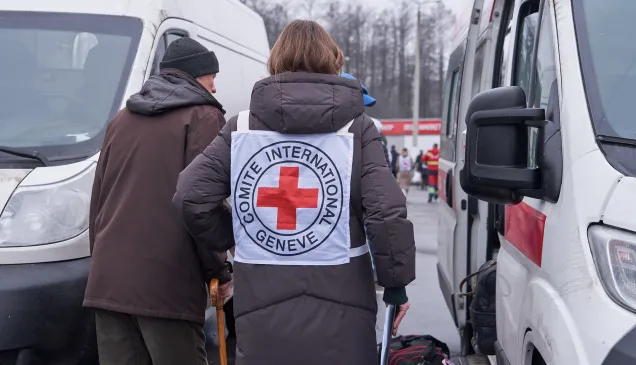Russia - Ukraine international armed conflict: ICRC continues to help people in need

The international armed conflict between Russia and Ukraine affects millions of people and the recent increase in military operations - as well as the destruction of the Nova Kakhovka dam - are bringing additional threats, especially for communities living on either side of the frontline.
This article highlights ICRC's main operations responding to the needs of the communities affected by the international armed conflict from 1 January to the end of May 2023. It includes an update on our response to the floods following the destruction of the Nova Kakhovka dam. For additional information on our assistance and protection activities in Ukraine, you can download our Facts and Figures.
Dam destruction and humanitarian response
The suffering inflicted on civilians by the floods following the destruction of the Nova Kakhovka dam comes on top of 15 months of intense shelling and military hostilities. Tens of thousands of people on both banks are directly or indirectly impacted.
ICRC teams have been working hand-in-hand with local actors and authorities since day one to serve emerging needs, with a particular focus on access to clean water and mine safety.
A few hours after the dam broke, ICRC distributed food and medical items to first responders, notably the Ukrainian Red Cross and the State Emergency Service of Ukraine, on top of signs to mark areas contaminated with mines, unexploded ordnance and remnants of war which may have been moved by the water.
Our focus is now to ensure that civilians in Kherson and surrounding areas have clean drinking water. ICRC teams immediately brought chlorination solution as well as large-capacity water pumps and tanks to help the Kherson water board protect their essential water and wastewater infrastructure. We delivered water tanks that can hold more than 200 cubic metres of clean water in Marhanets city and four nearby villages, and residents received 4,500 jerry cans to transport clean drinking water.
The ICRC stands ready to respond on both sides of the river and has reiterated its offer of emergency help, especially in areas where we do not currently have access or the necessary authorizations to bring assistance.
Ariane Bauer, ICRC Regional Director for Europe and Central Asia
This humanitarian response wouldn't be possible without partners like the Ukrainian Red Cross, whose mission it is to be a first-responder to such disasters, a mission they are achieving bravely including through the evacuation of hundreds of civilians, sometimes at great personal risks and in hard-to-reach places.
The ICRC has been present in this area prior to the breach of the dam. Since the beginning of the year, we have brought medical supplies for hospitals, first aid kits and training to first responders, repair material to service providers, food and hygiene parcels to local Ukrainian Reds Cross branches, and mine awareness material to the State Emergency Service of Ukraine.

The ICRC repairs water and pumping stations in Ukraine so people can have access to clean drinking water.
"Mines have been swept down in the deluge"
The ICRC has been following the situation of the Nova Kakhovka dam for months due to the conduct of military operations in the area. Both Russian and Ukrainian authorities were reminded the protection international humanitarian law provides to infrastructure indispensable to the survival of the civilian population.
"Mines have been swept down in the deluge. We need to map the flooding and forecast where mines may end up, and this is what the ICRC is doing with local authorities and experts," warned Erik Tollefsen, head of the weapon contamination unit at the ICRC.
Our teams are working closely with local authorities and emergency services to raise awareness of mine risks and promote safe behaviors.
We focus on the most weapons-contaminated areas (including Kherson, Kharkiv, Mykolaiv or Donetsk) and populations particularly at risk, notably technical staff carrying out repair of essential infrastructure, forestry workers and children.
Since the beginning of the 2023, we distributed 30,000 marking signs and 50,000 posters and leaflets on mine awareness. Over 10,000 people have attended training sessions on potential risks related to remnants of war and the safe behavior to adopt.
Update on prisoners of war
Since February 2022, the ICRC has visited a total of over 1,500 prisoners of war (POWs) in Ukraine and Russia. Gaining access to all POWs and civilian internees remains an essential priority for the ICRC.
The ICRC's Central Tracing Agency has been collecting information about prisoners of war from the Russian Federation and Ukraine. This information has provided more than 5,500 families with news about their missing loved ones.
Among those are more than 2,500 personal messages between POWs and their families that we have directly delivered along with Red Cross Red Crescent Movement partners. Delivering messages means we collect them from the prisoners, share them with their relatives directly when possible and do the same the other way around. The impact for the families is immeasurable.
When we are able to visit, in addition to checking on the conditions of detention and bringing much longed-for news from home, we have in some cases been able to hand over books, clothing, blankets, hygiene items, and personal necessities like eyeglasses.
We know much more is needed, we understand expectations are high and our teams are relentless in their efforts to obtain access to all POWs and civilian detainees.

Distribution of food and hygiene parcels to villages Zalyznychne, Nova Hnylytsia in Kharkiv region in cooperation with Ukrainian Red Cross volunteers.
Food, water, essential items and health assistance
The ICRC is providing essential items and assistance to communities close to the frontline and who have been particularly affected by military hostilities.
We support regional water boards and administrations in Mykolaiv, Izium, Kremenchuk, Novovorontsovka, Kherson, Zaporizhzhia, Donetsk, and Luhansk by providing purification chemicals, equipment and technical support. This has helped us bring safe drinking water to over 1.9 million people since the beginning of 2023.
In 2022 and 2023, the ICRC also distributed a total of UAH 6.4 billion (CHF 160 million) in cash assistance to over 346,000 people. This was done in partnership with the Ministry of Social Policy, targeting particularly vulnerable households. This financial support was meant to help people meet their basic needs.
Additionally, we have distributed close to 250,000 food parcels and hygiene kits to local communities, education facilities, and hospitals.
Our support to health facilities also includes the following activities:
- More than 7,000 war-wounded patients have been treated in the expanding list of hospitals that receive monthly ICRC support in the field of war surgery.
- 15 war-wounded kits and 350 kits with specifically-requested equipment were donated to frontline/referral hospitals and health-care facilities.
- 180 physiotherapists were trained in the management of lower-limb amputation patients. Similar on-the-job trainings are regularly conducted for medical practitioners.
- 39 primary health-care facilities in Donetsk and Luhansk were supported to continue health-care services.
- More than 5,700 people received mental health and psychosocial support as a result of ICRC collaborations including with the Coordination Headquarters for treatment of Prisoners of war, and search and rescue teams.



